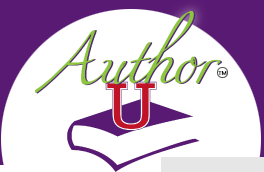 How do you go into someone’s office (or send them an email if you’re working virtually) and request them to “put a little more authenticity into your writing, please?” Sure, marketing is vastly improved when it sounds authentic.
How do you go into someone’s office (or send them an email if you’re working virtually) and request them to “put a little more authenticity into your writing, please?” Sure, marketing is vastly improved when it sounds authentic.
All the trend data shows that people prefer doing business with authentic brands and authentic professionals. The problem is that as an instruction it is totally unactionable. Authenticity is a noun, not a verb.
Jean-Paul Sartre, the French existential philosopher, viewed jazz as a representation of freedom and authenticity. But what does that mean for content marketing?
So as I was thinking about this incident that a colleague told me about, I starting thinking about the big picture. What does it mean to live authentically, to live well, write well, and do your best work?
I think about these things because, as I age, I become more aware of how limited time is on this Earth. I can’t do everything or learn everything, nor do I need to. Which means I have to choose which things to do, and say ‘No” to a few activities I’m sure I’d enjoy.
I meet weekly with a group of 10 women to discuss the meaning of life. (No, really…Some people have book clubs, or exchange recipes and garden tips. I go for the big stuff: what really matters.) Each of our members is highly educated, accomplished in a profession or the arts, and brings a different perspective.
We’re not similar in politics, religion or family backgrounds, and many of us have lived all over the world. We’re all over the age of 60. We always seem to find a common value or challenge that we struggle with. I come away with a sense of renewed energy for life.
For the last couple of weeks we’ve been discussing this word which I think gets bandied around too liberally without adequate definition: authenticity. What the heck does that mean, anyway? We should write authentically, from the heart, and connect with readers on an emotional level. Yikes, that could mean a lot of things.
Then I read this in Simon Sinek’s beautiful book, Start with Why:
“For values or guiding principles to be truly effective they have to be verbs. It’s not ‘integrity,’ it’s ‘always do the right thing.’ It’s not ‘innovation,’ it’s ‘look at the problem from a different angle.’ Articulating our values as verbs gives us a clear idea… we have a clear idea of how to act in any situation.”
One thing’s for sure, you can’t go out and ask customers what they want you to do in order to be perceived as authentic. That completely destroys all chances of becoming so.
In my group meeting, I had to answer this question and put the noun into a verb form. I came up with:
“When I’m authentic, I am true to myself in what I do and say, and I respect others’ needs to be true to themselves.” Even that seems a bit vague… true to myself? I’m still thinking about this, and trying to see examples in real life where I do it and when I don’t do it. So far, I’m about even.
Online, there are a few people who stand out for me who come across as authentic. You can read their blogs to discover for yourself how/why their writing resonates authentically. People like Sonia Simone and Naomi Dunsford come to mind, but there are many others I enjoy reading like Robert Sutton, Seth and all the great minds on Harvard Business Review.
What about you, what makes someone’s writing seem authentic? How do you add a little more of it into your content marketing?














Recent Comments